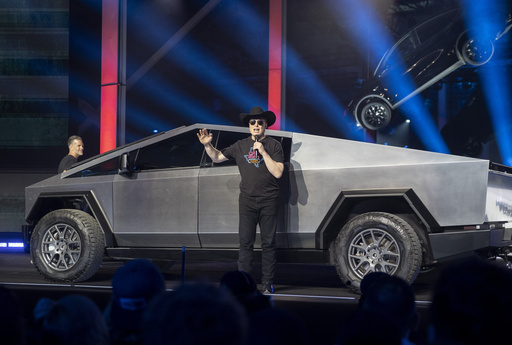DETROIT — In a significant legal development, a judge in Delaware has invalidated a massive compensation package that had been previously awarded to Elon Musk, CEO of Tesla. This ruling marks the second time this year that Musk’s pay plan, initially valued at $56 billion, has been declared null and void. The decision was made on Monday when Chancellor Kathaleen St. Jude McCormick declined Musk’s attorneys’ appeal to overturn her earlier ruling from January, which had dismissed the controversial pay agreement. The Chancellor reasoned that Musk had a firm grip on Tesla’s board and had orchestrated the exorbitant payment plan during insincere negotiations.
Shareholder attorneys had argued that the investors who approved the 10-year pay package back in 2018 had been misled and lacked critical information at the time of voting. In their defense, Tesla’s board contended that when shareholders ratified the compensation plan for a second time in June, they did so with complete disclosures, effectively resolving the issues highlighted in the judge’s prior ruling. Consequently, they maintained that Musk was entitled to the payment for his part in boosting Tesla’s market value significantly.
However, McCormick dismissed this line of reasoning in her thorough 103-page opinion, asserting that under Delaware law, no basis existed for the reversal of her January decision. “Based on evidence they created after trial,” the Tesla attorneys did not meet the necessary legal standards to alter her findings.
Following the ruling, Tesla announced on the social media platform X, owned by Musk, that the company intends to appeal the judge’s decision. The appeal will be submitted to the Delaware Supreme Court, the only appellate court in the state available for Tesla’s pursuit. Legal experts anticipate that a ruling from the Supreme Court may emerge in less than a year.
Tesla strongly argued that the ruling, if upheld, would set a precedent where judges and plaintiffs’ lawyers dictate the operations of Delaware companies instead of the rightful owners—shareholders. Musk took to X to vocally criticize the ruling and the judge, labeling McCormick as “a radical far left activist cosplaying as a judge.”
Legal analysts generally view Chancellor McCormick’s decision as sound and consistent with the law. Charles Elson, founding director of the Weinberg Center for Corporate Governance at the University of Delaware, expressed that the Chancellor was correct in her assessment that Tesla’s attempt to conjure new evidence after losing the original case was improper. He emphasized that accepting such a claim could considerably undermine Delaware’s laws designed to manage conflicts of interest, especially given the close relationship between Musk and the company’s board.
Elson added, “Delaware protects investors — that’s what she did. Just because you’re a ‘superstar CEO’ doesn’t put you in a separate category.” He cautioned that allowing exceptions for high-profile individuals could dissuade investors from placing their funds in Delaware corporations.
Looking ahead, Elson surmised that the Delaware Supreme Court is likely to uphold McCormick’s ruling. When considering the possibility of Tesla appealing to federal courts, experts indicated it would not be feasible, as state law issues typically remain within state court jurisdiction. Brian Dunn, who serves as program director for the Institute of Compensation Studies at Cornell University, confirmed Tesla’s necessity to continue navigating the Delaware courts regarding this compensation plan.
Despite relocating its legal headquarters to Texas, experts believe the shift may not impact the outcome significantly. Although Tesla could attempt to restructure the compensation package and seek legal approval in Texas, Dunn noted the likelihood of encountering challenges from other shareholders regarding the excessive nature of such a package compared to typical CEO compensation.
The prospect of a new pay package potentially exceeding the current plan looms large. Morgan Stanley analyst Adam Jonas noted that Tesla’s stock is presently trading at 15 times the exercise price of stock options within the existing package. With Tesla shares having doubled in value over the last six months, Jonas reported that Musk’s current compensation package is now valued at approximately $101.4 billion. Furthermore, Musk has expressed interest in a subsequent pay structure that would grant him 25% of Tesla’s voting shares, asserting his discomfort in progressing further into artificial intelligence without this level of control. Currently, he holds around 13% of Tesla’s outstanding shares.


